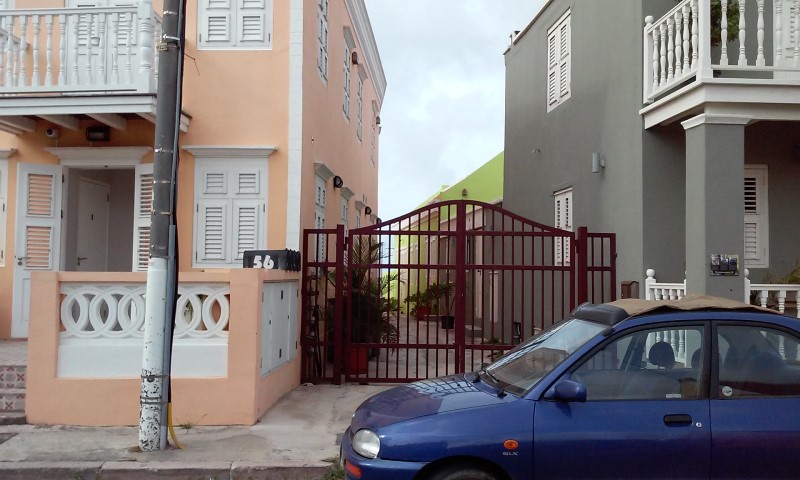Landjepik
De laatste paar dagen zijn de media erg druk met de ontwikkelingen rond Baoase: of ze wél of geen vergunning hebben, of er wél of geen recht van overpad geldt, of de nodige vergunningen wél of niet in huis waren voordat ze begonnen te bouwen, of dat deze achteraf gauw afgegeven werden nadat Judas Koko het hek had opengebroken.
Dus madam Zita Jesus-Leito riep gauw in paniek een persconferentie bijeen, om duidelijk uitleg te geven dat er geen hocus pocus-handelingen waren; alleen om erachter te komen dat een lokaal dagblad allemaal gaten prikte in haar presentatie en de onregelmatigheden naar voren bracht. Oeps foutje!
Ik heb, als ik mij niet vergis vorig jaar al dat geval van landjepik door die mensen naar voren gebracht en werd gelijk uitgenodigd om persoonlijk te komen kijken naar alle vergunningen.
Het leuke is dat dit maar één geval is, de hele zuidkust is één grote landjepikclub. Van Sea Aquarium tot aan Marichi heeft iedereen door de jaren heen zich op een of andere manier schuldig gemaakt aan landjepik. Of het nou een eilandje bouwen is, of een ‘breakwater’, of een privéstrand aanleggen, of rotsblokken in zee mikken en bakken zand ertussen gooien en dat als stadsstrand verkopen, of dure appartementen bouwen op gedempt terrein, of een steigertje aanleggen: ze hebben het allemáál gedaan!
Jarenlang hebben we geklaagd over Saint Tropez dat zonder een bouwvergunning toch een horecabedrijf draait, dat ze daar een gebouw hebben neergezet en zelfs de helft van het trottoir hebben meegenomen en niemand deed daar wat aan. Laten we het maar niet hebben over de gestolen stegen in Pietermaai, die gebruikt worden als privégarages waar de dure SUV’s veilig geparkeerd staan achter hoge hekken.
Erger nog, dat ze zo ver gaan om de regering te overtuigen dat ze kustversterking nodig hebben voor hun stadsstrand omdat er grof weer zou komen, om dus zo hun terrein te vergroten op onze kosten; gratis en por nada!
What about een restaurant gebouwd op openbaar terrein en niemand doet er wat aan? Of een compleet appartementencomplex, wat zonder bouwvergunning is gebouwd, waarvan door een rechter is bepaald dat dat ding gesloopt moest worden, maar wat Suzy Camelia-Römer niet durft te doen en dus een commissie in het leven heeft geroepen om de situatie te bestuderen, al twee jaar lang!
Door de jaren heen zijn ministers Earl Balborda en Ben Whiteman wezen kijken, geflankeerd door ja-knikkende ambtenaren met meetlinten en clipboards, inclusief een legertje persfotografen, en stonden ze te poseren met de paar bewoners die er nog over zijn.
Maar o wee als je een carport wil bouwen! Wat je allemaal nodig hebt volgens ROP voor een dingetje van drie vierkante meter, wat je met een stel vrienden tijdens een weekend neer kan zetten. En deze mensen zetten een joekel van een gebouw neer en niemand komt kijken of stelt vragen?
Laten we naar dat Girogebouw tegenover Mensing’s kijken. Dat ding was twee verdieping te hoog en ze mochten niet verder gaan, en toch kregen ze de nodige vergunningen - achteraf!
Of een bed & breakfast op Bándabou met drie bouwstops, die doodleuk doorgaat en daar bovenop nog een stuk terrein pikt om een parkeerplaats te maken, dat wordt geopend door Steven Martina himself.
Maar een vrouwtje met haar minimumloon dat maandelijks 100 blokken koopt om haar eigen huisje te bouwen, dat muurtje wordt gelijk gesloopt omdat ze geen bouwvergunning heeft.
Meten we met twee maten? Wat denken jullie zelf? En we maken ons druk om een hek wat vernield wordt? Zo te zien hebben we grotere problemen. Ik blijf lachen op deze klip want we heffen een glas, nemen een hap, doen een plas en alles blijft zoals het was.
Arthur Donker,
Curaçao
